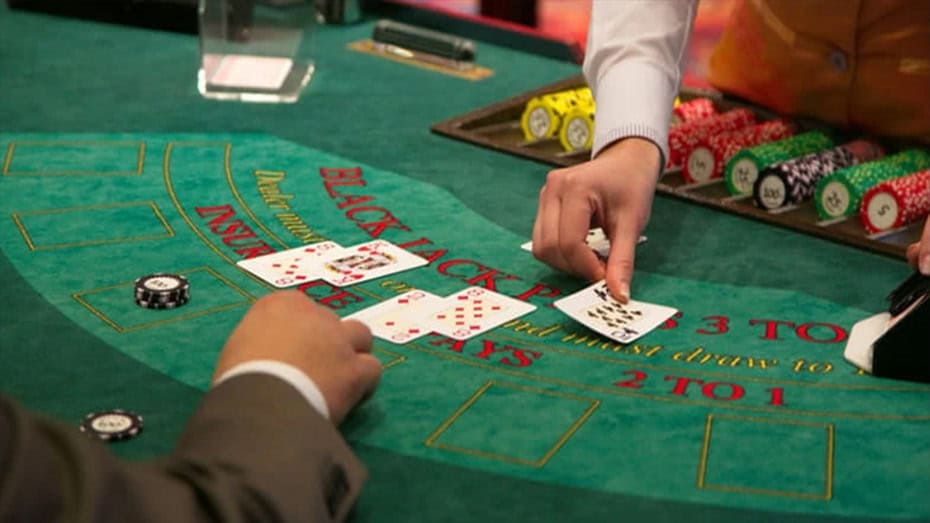Live Poker at Its Finest | Strategies To Play & Win The Poker Game

Live poker, a variation of the game played in person, typically takes place within the confines of brick-and-mortar casinos or poker rooms, distinguishing itself from its online counterpart found on various live casino platforms. In this live version, participants convene around a table, managing physical cards and chips, participating in direct, face-to-face interactions. The charm of live poker lies in its sociable and immersive nature, providing a distinct experience compared to online poker available on virtual platforms.
Live poker encompasses a spectrum of game formats, including the widely favored Texas Hold’em, Omaha, and Seven Card Stud. Success in this dynamic arena hinges on a blend of strategic acumen, skillful play, and the ability to decipher opponents. The presence of professional dealers ensures the smooth flow of the game, from distributing cards to managing bets.
A distinctive element of live poker is its rich tapestry of history and traditions, coupled with the thrill derived from scrutinizing opponents’ facial expressions and body language, commonly known as “poker tells.” This psychological dimension adds an extra layer of fascination to the game, making live poker a cherished and exhilarating pursuit for enthusiasts worldwide.
A Guide for Players: Navigating the Live Poker Landscape

Participating in live poker entails a sequence of pivotal steps and considerations. Here is a comprehensive guide for newcomers on how to plunge into the realm of live poker:
Exploring Different Types of Live Poker

Live poker presents an assortment of poker variations for enthusiasts in casinos, poker rooms, or private gatherings. Below, we delve into some well-known live poker variants:
Texas Hold’em
One of the most widely embraced live poker forms, Texas Hold’em involves the distribution of two hole cards. Players utilize these cards in combination with five community cards to construct the best possible hand. Texas Hold’em includes No-Limit, Pot-Limit, and Fixed-Limit variations.
Omaha
Similar to Texas Hold’em, Omaha distinguishes itself by dealing four hole cards to players. The unique twist is that participants must incorporate exactly two of their hole cards with three community cards to form their hand. Omaha also features diverse betting structures.
Seven Card Stud
This classic variant provides players with seven cards, comprising three concealed and four visible cards. The objective is to create the strongest five-card hand from this seven-card combination.
Razz Poker
A lowball poker variant where the goal is to secure the lowest possible hand. Players are dealt seven cards, and the winner is the participant with the lowest hand, disregarding straights and flushes.
Five Card Draw
An ancient poker variant where players receive five face-down cards. Players can opt to swap out some or all of their cards, aiming to enhance the strength of their hand. The best five-card hand at the end of the final betting round prevails.
Pineapple and Crazy Pineapple
Variations akin to Texas Hold’em but with a twist. Pineapple provides players with three hole cards, while Crazy Pineapple involves discarding one card post-flop, introducing an added layer of complexity and strategy.
H.O.R.S.E.
A mixed-game format that rotates through various poker variants, including Hold’em, Omaha, Razz, Seven Card Stud, and Eight or Better (Stud Hi-Lo). Success in H.O.R.S.E. requires proficiency in multiple poker styles.
Mixed Games
Some live poker tables feature mixed game formats, where different poker variants are played consecutively. These can include games like 2-7 Triple Draw, Badugi, and more.
Dealer’s Choice
In informal or private settings, participants often take turns as the dealer, choosing the poker variant for that specific hand. This introduces an element of variety and amusement to the gameplay.
Betting Structures in Live Poker for Effective Gameplay

Live poker games are governed by specific betting structures that define the rules and limits for player bets and raises during a hand. Mastery of these structures is crucial for successful gameplay. Here are some commonly encountered betting structures in live poker:
No-Limit (NL)
In a no-limit game, players can bet any number of chips they have at any point during their turn, with no upper limit. This format is known for its high-stakes intensity and the potential for significant chip stack swings.
Pot-Limit (PL)
Pot-limit poker sets a maximum bet or raise, capped at the current pot size. Players can bet or raise up to the total chips in the pot, including their own previous bets and raises. This structure allows flexibility while preventing excessively large bets.
Fixed-Limit (FL)
Fixed-limit poker establishes predetermined bet and raise sizes for each betting round. For example, in a $2/$4 limit game, bets and raises are restricted to $2 in the early rounds and $4 in later stages. This format results in smaller bets and a more controlled pace of play.
Spread-Limit
Spread-limit poker allows players to bet and raise within a defined range. In a $5-$10 spread-limit game, participants can wager or raise any amount between $5 and $10, striking a balance between the unrestricted nature of no-limit and the confined nature of fixed-limit games.
Mixed Betting Structures
Some live poker games use mixed betting structures, featuring different limits in various rounds. For instance, a game might start with fixed-limit betting and transition to pot-limit in later rounds.
Antes and Blinds
In many poker games, especially those with multiple players, antes or blinds initiate action and contribute to the pot. Antes are common in stud and draw games, while blinds are prevalent in games like Texas Hold’em and Omaha.
Kill Pots
In select limit games, a “kill” can be activated when a player wins two consecutive hands. This triggers an escalation of betting limits for that hand, resulting in larger pots and increased betting activity.
What are the Different Poker Hand Rankings

In live poker, as in most poker variants, hand rankings are crucial for evaluating the strength of a player’s hand and resolving conflicts. Here’s a breakdown of standard poker hand rankings, ranked from the most powerful to the least:
- Royal Flush: Ace, King, Queen, Jack, and Ten of the same suit. This is the highest-ranking and unbeatable hand in poker.
- Straight Flush: Five consecutive cards of the same suit. In case of a tie, the straight flush with the highest top card wins.
- Four of a Kind (Quads): Four cards of the same rank, accompanied by a fifth unrelated card. The set with the higher four of a kind wins in case of a tie.
- Full House: Three cards of one rank and two cards of another rank. The full house with the superior three of a kind claims the pot in case of multiple players having full houses.
- Flush: Five cards of the same suit, not necessarily in sequence. The flush with the highest single card wins, with subsequent cards breaking ties if necessary.
- Straight: Five consecutive cards of different suits. In case of a tie, the straight with the highest top card prevails.
- Three of a Kind (Trips or Set): Three cards of the same rank, with two unrelated cards. The set with the higher trio wins in case of a tie.
- Two Pair: Two cards of one rank, two cards of another rank, and a fifth card that doesn’t contribute to either pair. The player with the superior top pair takes precedence in ties, with the second pair and fifth card considered if needed.
- One Pair: Two cards of matching rank and three unconnected cards. The player with the higher pair wins in case of a tie.
- High Card: When none of the above hands materializes, the strength of the hand is determined by the highest card. Subsequent cards are examined in case of ties.
Advanced Tips and Tricks to Play Live Poker

Achieving success in live poker extends beyond simply understanding the rules and hand rankings; it involves implementing effective strategies to outsmart your opponents. Here are crucial tactics to excel in live poker.
FAQs
Conclusion
Betx24’s Live Poker delivers diverse and engaging experiences, whether you crave the authentic ambiance of live casino poker or the convenience of online platforms. With various poker variants, an immersive atmosphere, live dealers, and interactive gameplay, Betx24 caters to those seeking a sociable poker experience. Online casinos, offering flexibility and a wide array of poker games with enticing bonuses, provide an alternative. Regardless of your choice, both Live Poker in Betx24 offers opportunities to showcase skills, enjoy the game, and potentially secure real winnings, ensuring a vibrant poker landscape for players of diverse backgrounds and skill levels.










